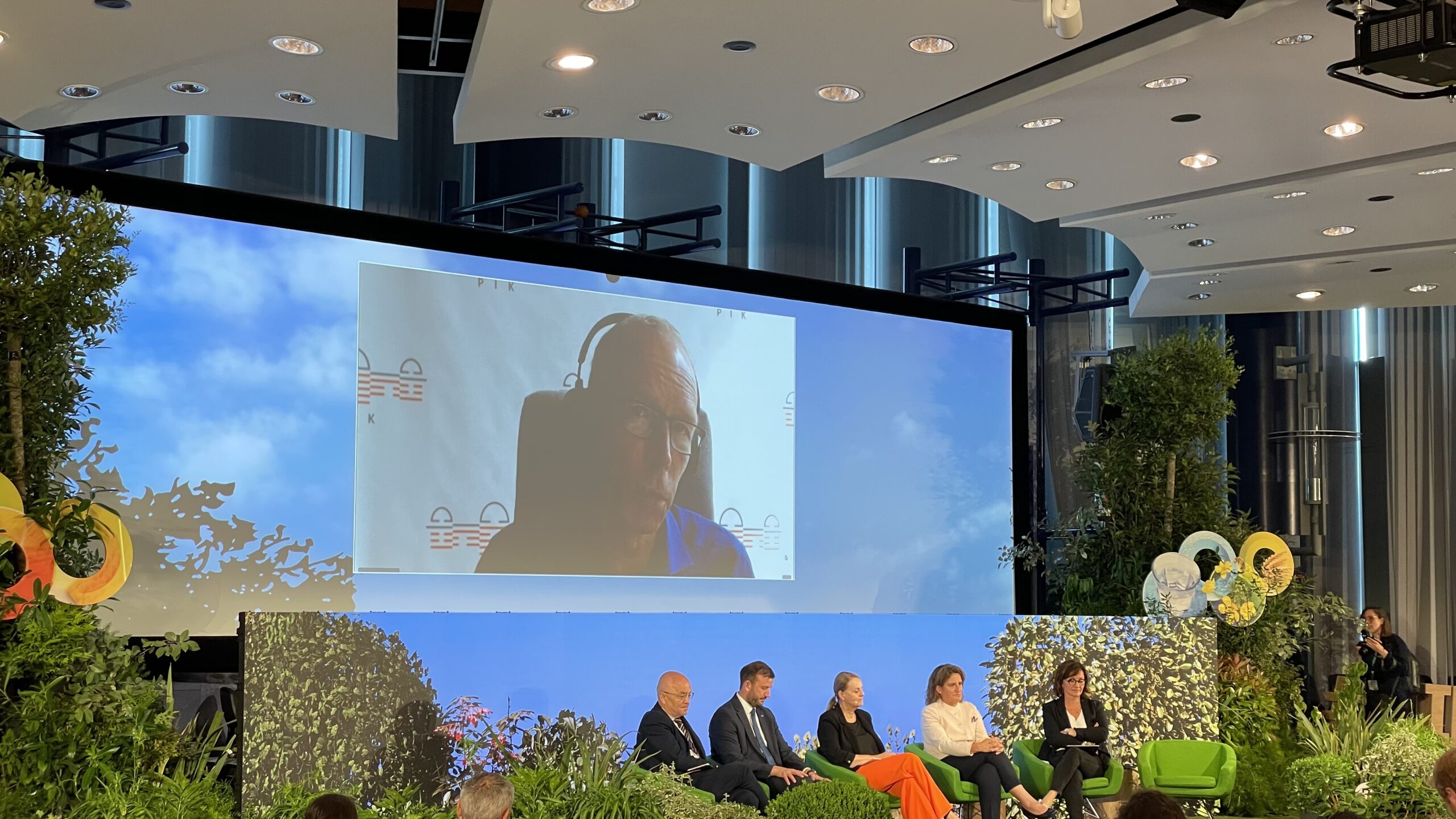BRUSSELS – A conference on achieving a net-zero world was held as part of the European Union Green Week in Brussels on June 6.

Each year, the EU Green Week brings together policymakers, environmental leaders, and stakeholders to discuss and address environmental policy concerns. Photo credit: The Astana Times.
In her welcoming remarks, Ursula von der Leyen, the President of the European Commission, highlighted the role of the EU Green Deal and the EU’s strategy for reaching the 2050 goal.
“Last year for the very first time, the European Union generated more electricity from sun and wind than from gas. We are on track to double the deployment of renewable energy this year again. We have persistently increased our climate ambition with Fit for 55 [EU’s plan for green transition] and then REPowerEU [European Commission proposal to end reliance on Russian fossil fuels before 2030]. We are leaving the throwaway culture behind. We are entering a circular economy based on innovation. We’re modernizing our industry with the next zero industry act. Thus, we are creating hundreds of thousands of new jobs all over Europe,” said Ursula von der Leyen.
Disastrous changes are still happening worldwide due to climate change and require more action and solutions.
The experts agreed that the net zero deal is a global ambition and that all nations are interconnected on one planet.
EU Commissioner for Environment, Oceans and Fisheries, Virginijus Sinkevičius, noted that after achieving the global deal at COP15, “restoring and protecting biodiversity has become a global ambition.” Now the countries “need to implement this and show that there is even more scope for that ambition.”
According to Johan Rockström, director of the Potsdam Institute for Climate Impact Research, it is crucial to keep carbon accounts stringent and robust and have a transparent reporting and monitoring scheme.
“Is this transition possible? We have so much evidence and have the scalable technologies to do the first step which is cutting global emissions by half by 2030. I would argue that’s the biggest lift that is not only possible and necessary but can trigger positive tipping points, making exponential journeys towards a sustainable and manageable encouragement future possible,” said Rockström.
The experts also mentioned a growing number of climate change deniers who slow down the necessary actions to combat climate change. It is therefore up to the local and regional authorities to make decisions in favor of changing the quality of life in cities for the better.
The sessions featured topics related to the restoration of biodiversity in Ukraine, the circular economy, and the social consequences of sustainable products.
The EU Green Week kicked off on June 3 and will run through June 11. Each year, it brings together policymakers, environmental leaders, and stakeholders to discuss and address environmental policy concerns in Europe and across the globe.
Kazakhstan and the green transition
Kazakhstan joined the Paris Agreement in 2016. A year earlier, Kazakhstan demonstrated its commitment by presenting its Nationally Determined Contribution (NDC) under the UN Framework Convention on Climate Change. In 2020, President Kassym-Jomart Tokayev announced a new goal to achieve carbon neutrality by 2060, confirming Kazakhstan’s obligations under the Paris Agreement at the Ambition Climate Summit.
The country plans to reduce greenhouse gas emissions by 15 percent by 2030. Its commitments also include a fivefold expansion in energy production from renewables from 3 to 15 percent, doubling the amount of energy produced from environmentally friendly sources from 20 to 38 percent, as well as expanding the national carbon absorption capacity by planting more than 2 billion trees. A 30 percent reduction in the share of energy generated from coal, from 68.9 to 40.1 percent, is also expected.
The Strategy on Achieving Carbon Neutrality by 2060 was approved this February. The document identifies key technological transformations for the country’s decarbonization. It includes targeted policies and programs for the economy.
The strategic partnership between Kazakhstan and the EU reached a new level following the agreement on raw materials, batteries and renewable hydrogen that was reached at the sidelines of the 27th UN Climate Change Conference of the Parties (COP27) in November 2022. According to the EU Commission’s release, a sustainable supply of raw materials and renewable hydrogen seeks to boost the green and digital transformation of the economies of both sides.

